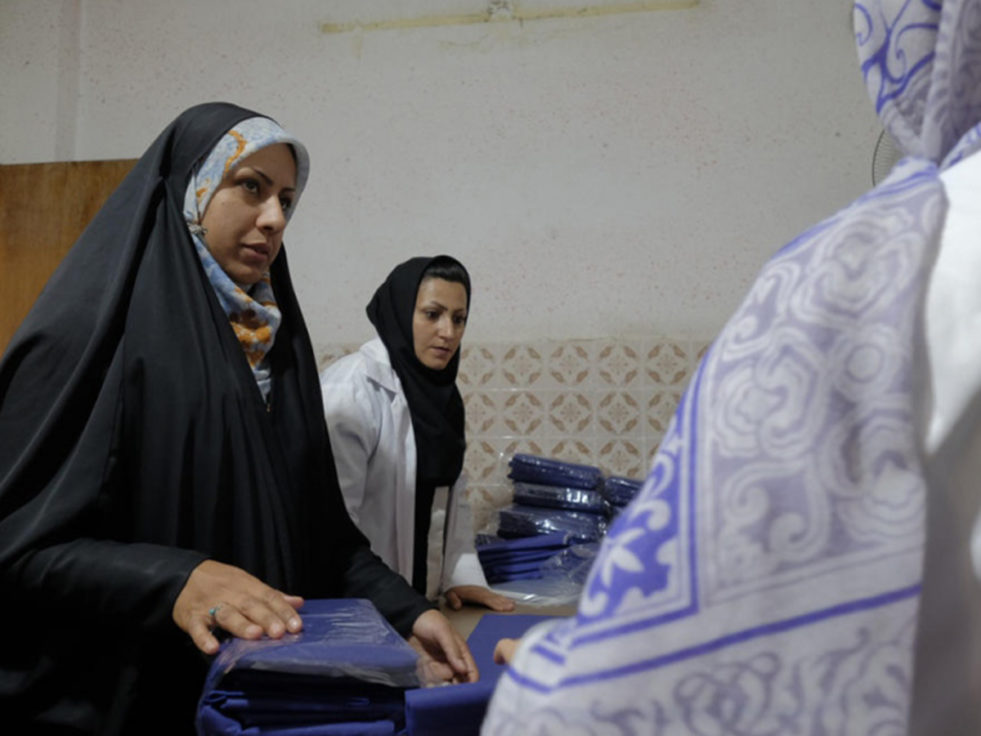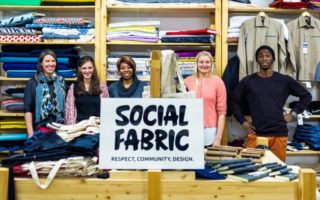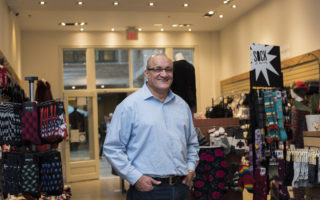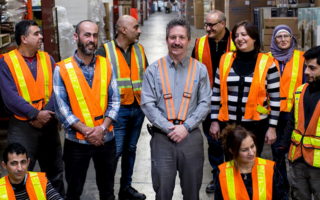
Zeynab Shaban, a 34-year-old refugee and entrepreneur, supervises staff at her tailoring workshop in Shiraz. © UNHCR/Morteza Nikoubazl
After her husband died, Afghan refugee Zeynab Shaban set up a successful business making hospital gowns that helps refugee and Iranian employees alike.
When her husband passed way, Afghan refugee Zeynab Shaban was faced with the daunting task of raising her children on her own.
“I had to be strong and stay positive that things would work out, so I began thinking about the skills I already had, to focus on what I knew I was good at.”
Zeynab is among some one million Afghan refugees in the Islamic Republic of Iran who have fled 40 years of conflict at home to seek safety and a new life.
At the age of 19, she had nurtured a talent for tailoring, thanks to a vocational skills training course organized by the Iranian government, which supports the integration of refugees into national systems in a variety of ways.
“I began thinking about the skills I already had.”
Utilizing these skills, she developed a business plan and approached UNHCR, the UN Refugee Agency, for help.
“While grieving for the loss of my dear husband, I realized that if I was ever going to make something of myself, something that I would be really proud of, perhaps now was the time to start,” she says.
Thanks to UNHCR’s support, she bought a set of small sewing machines and started producing custom-made clothing from home.
“Starting small-scale, I received minimal orders from the community in my neighbourhood,” she explains. “But it wasn’t long before these orders grew.”
Recognizing the potential for expansion, Zeynab set her sights high and eventually won a contract with one of Iran’s main hospitals in Shiraz.
“It was my lucky break!” she recalls. “I won a contract to tailor hospital gowns for the biggest hospital in southern Iran.”
Impressed by the quality of her products, the hospital increased its orders and Zeynab’s tailoring business quickly became their regular supplier. Zeynab also reached out to other hospitals, resulting in additional contracts with three other institutions across southern Iran, as well as pharmaceutical and medical supply stores.
Struggling to meet growing demand, Zeynab returned to UNHCR for support. This time she received 13 professional sewing machines and accessories, enabling her business to design, manufacture and distribute hospital garments and bedsheets.
“It was my lucky break!”
Registering the company and receiving an official license even allowed Zeynab to generate jobs for others. With UNHCR’s help, she recruited over a dozen women, both Afghan refugees and Iranians, prioritizing the most vulnerable.
Determined to help more women in her community, Zeynab – who has since remarried – has also established a free internship scheme for vulnerable Iranians and Afghans. Since 2014, she has trained over 200 women on the job, enhancing their skills and enabling her business to flourish. Her workshop in Shiraz now supplies five hospitals across the city, and has 30 full-time staff – most of them women.
For Afghan refugee Mahrou Maleki, the job has provided a lifeline for her family, after her husband, the principal breadwinner, fell ill.
“I can now support my family and it is like I have a second family now, the people I work with,” she says.
For her Iranian colleague Fatemeh Ziaie, working alongside Afghan co-workers has also challenged the way that she and others think about refugees.
“Things have changed. At first people around me were not happy, but now, it’s different,” she says. “We are friends, we are a family, we are together most of the day.”
The Government of Iran continues to implement its progressive and inclusive refugee-related policies in the areas of health, education and livelihoods. Working with UNHCR, the government offers a diverse portfolio of technical and vocational training courses to budding entrepreneurial refugees like Zeynab.
The economic inclusion of refugees in Iran is one example of the good practices transforming the lives of refugees and their hosts in many parts of the world, at a time when record numbers of people are being driven from their homes by wars and persecution.
Strengthening the international response is at the heart of a high-level meeting in Geneva later this year. Promoting a whole of society approach, the Global Refugee Forum will bring together governments, international organizations, local authorities, civil society, the private sector, host community members, and refugees themselves.
Under discussion will be how to provide greater support to refugee hosting communities, boost refugee self-reliance, increase opportunities for resettlement and support conditions for a safe return to countries of origin.
Originally published on UNHCR on 10 October 2019





